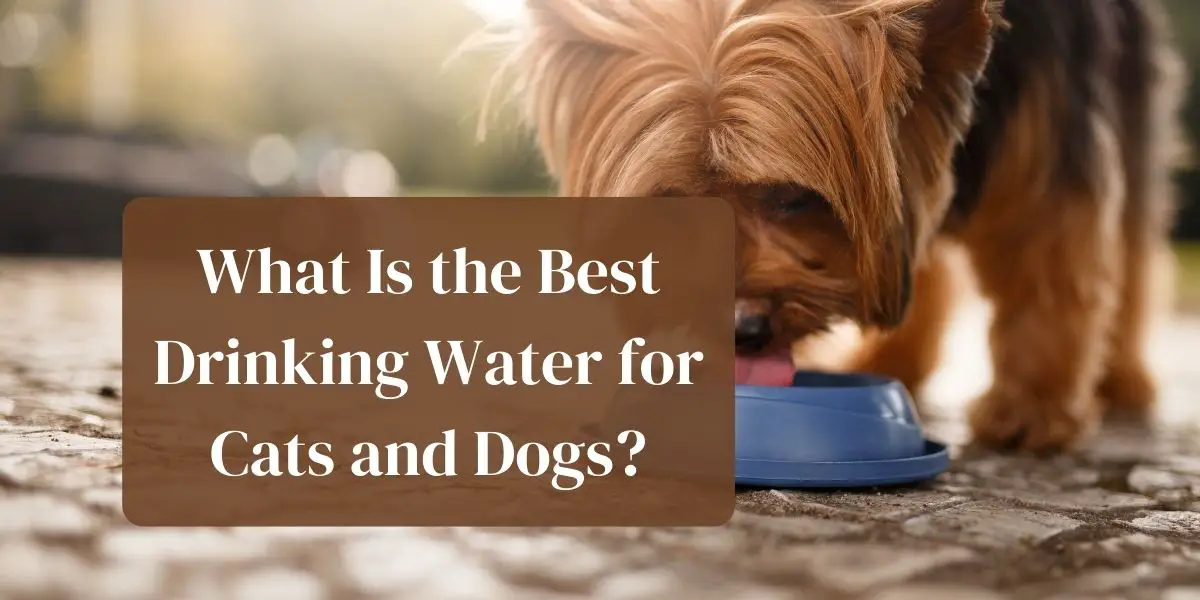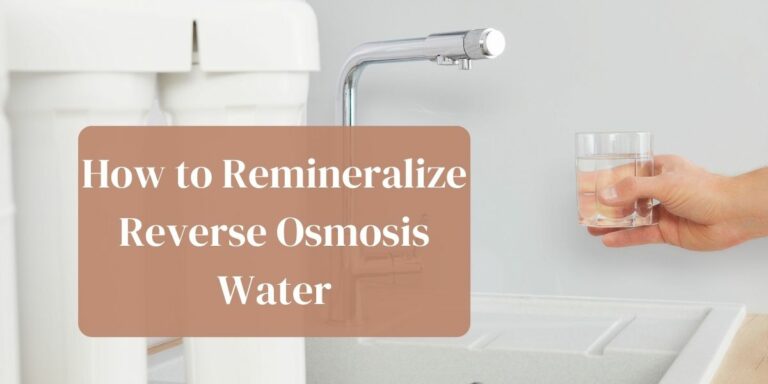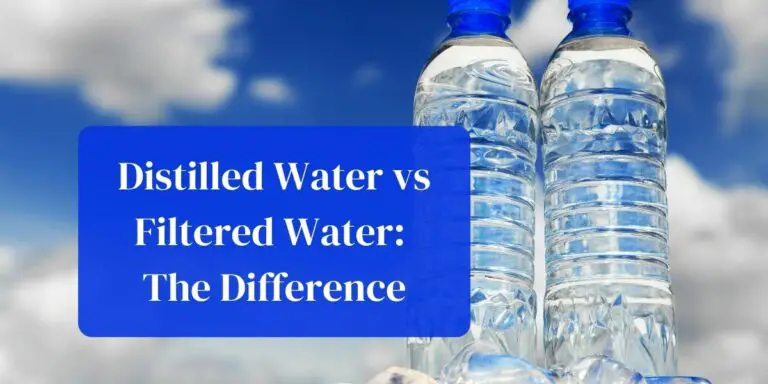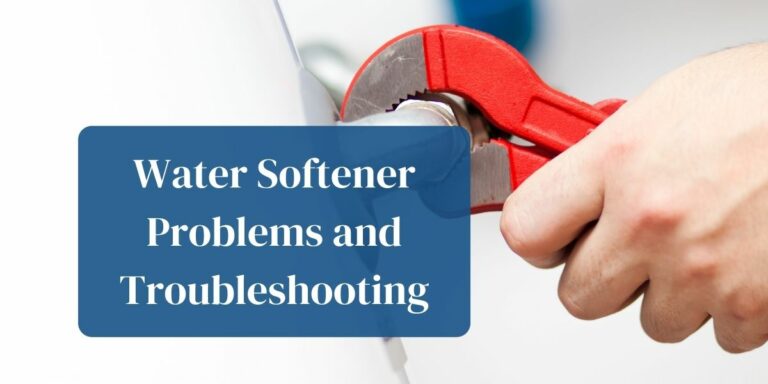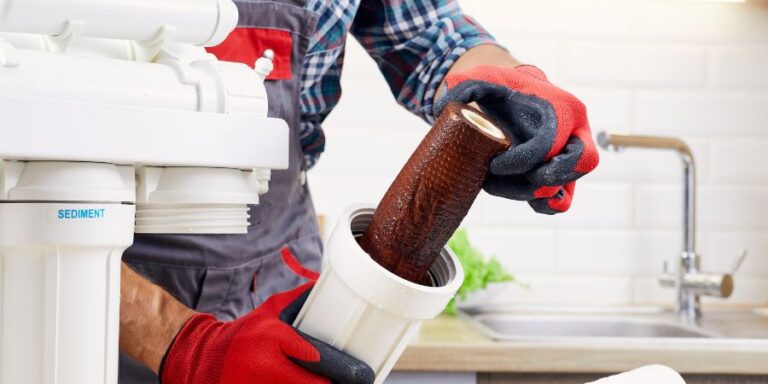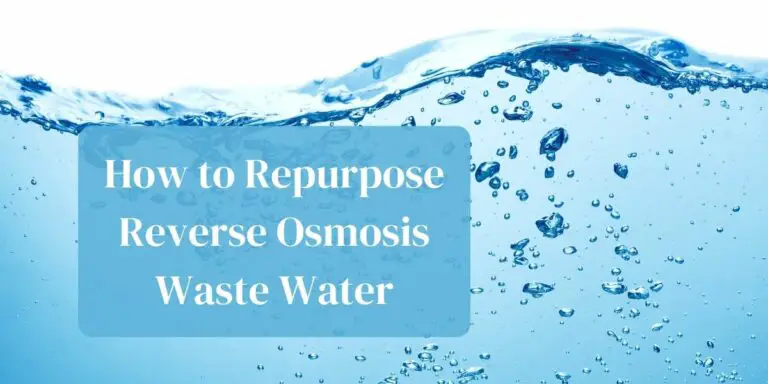Which is the best drinking water for your pet? Cats, dogs, and other furry friends need to drink water every day. There are several sources of water available: tap and bottled water, or water purified from reverse osmosis and other filtration systems.
If you aren’t sure of the health implications of the water you give to your pet, let’s dive into the content to see which water sources are suitable to drink for your animal friends.
The rule of thumb
The general rule states that the best water for your furry friends is the water you would drink yourself. If a reverse osmosis product is suitable and healthy for you, the same applies to your pet. Similarly, if the product isn’t safe and poses health risks, consider it unhealthy for your cat or dog.
In doubt, please consult your local vet.
Can your pets drink reverse osmosis water?
Reverse osmosis water is virtually pure water. It contains no micro-organisms, lead, chlorine, or pesticides. That seems like it makes it good for your pet. When something is safe to drink for humans, it’s safe for cats and dogs, too.
However, the process of water filtration kicks out essential minerals which your pets would need. This can alter electrolyte levels in the blood, leading to water toxicity and over-hydration in your pet.
Continuous intake of demineralized water can lead to potassium and magnesium deficits, which would lead to heart problems. Also, your cat or dog might not like demineralized water, hence preventing proper hydration.
The main concern will be if your pet gets all the minerals and salts from their food. If it does, then the reverse osmosis water is good for your furry friends. However, if RO water comprises the large part of your pet’s drinking water, consider remineralization. Thus, you can protect your pet from all the harmful impurities in the water while ensuring your pet gets all the minerals.
(Interestingly, highly pure water may be useful in treating urinary problems, including stones, crystals, and infections. Your vet may propose to use such water for your cat or dog temporarily to cure a disease.)
Also read: The best countertop reverse osmosis systems
Is distilled or alkaline water good for pets?
Don’t use distilled water for your pet, since it is acidic and can lead to low levels of pH for your cat. In extreme cases, it can lead to healthy complications such as causing stones and crystals. Likewise, alkaline water (has a higher pH) should be avoided at all cost.
Also read: Reverse osmosis vs. distilled water: What’s the difference?
Is tap water good for pets?
Is tap water safe for your furry friends? Pets can drink tap water, however, the content composition and purity varies from one location to another. It is essential to evaluate its hardness since it may lead to health problems.
Tap water may contain high chlorine levels, which gives an odor that puts off your pet, and it might fail to drink enough water. To be confident that the water is safe for your pets, you can have it tested or find information from the annual quality reports for the utility.
Is well water good for pets?
It depends on the well’s water quality. Wells often contains many contaminants, which makes it unsuitable for humans or pets to drink. To ascertain that, you can have it tested. Some minerals found in well water may cause urinary tract infections in your pets.
Also read: The best water filter systems for well water
Is hard water good for pets?
Hard water comes from sources such as well and tap, since it contains minerals, including calcium and magnesium. Continuous intake of hard water by your cat or dog can result in urinary obstruction, bladder infections or stone formation.
Fortunately, you can easily determine the safety of your water. Get a kit from your local hardware and test the content and hardness of your water.
Besides, research indicates that problems only arise from the usage of extremely hard water. Water within the normal limits of hardness is not likely to bring health complications to your pet.
Is soft(ened) water good for pets?
Water softeners turn the hardness by exchanging the calcium and magnesium with potassium and sodium ions, resulting in soft water. The quantity of sodium you add depends on the hardness of the water.
In most instances, you add only a small amount of sodium. However, be careful not to raise the concentration to unhealthy levels. Also, some furry friends won’t like the salty taste in the soft water.
The good news is that you can use non-ion-based softeners to make the hard water soft. Water conditioners will soften the water without altering the sodium levels.
Also read: The best water softeners
Is filtered water good for pets?
Using filtration or buying filtered water can ensure your pet is drinking safe water every day. For example, water with reverse osmosis and distillation produce high-quality water that is virtually pure.
Additionally, reverse osmosis and distilled water can go a long way in treating your pets’ track infections. However, it may not be suitable water for cats and dogs eventually.
The carbon filtration method ensures you get rid of most of the chemicals from your water, including heavy metals and eliminating the bad odor and taste. Besides, there are special filters media such as activated alumina for cleaning persistent stuff, including fluoride and arsenic. UV light is vital in killing the waterborne pathogens.
To determine which method is suitable depends on your water conditions and what you prefer. What is the quantity of filtered water you need? Is the filter that is needed in line with your budget? If you prefer filtering the water at your home, analyzing the water’s content would be the most vital thing. Then choose a filter that suits the purpose.
Some water fountains have filters. With it, your pet will not only get access to clean water, but also keep them hydrated. Typically, pets prefer drinking moving water. However, it will be essential to replace the filters frequently. Alternatively, you can use filtered water in your fountain.
Also read: The best countertop water filters for your home
Is bottled water good for pets?
Sure. But your pet drinking bottled water is a waste of money resources. It would only be reasonable to use it if you have no other source of water at all, maybe on travel.
Is mineral water good for pets?
Mineral drinking water contains high mineral composition. The mineral content might be so high, hence leading to urinary tract complications.
Is carbonated water good for pets?
Carbonated water can lead to gastric upset. If it is at high levels, it can lead to bloating, which would pose risks to your pet. It can also lead to vomiting and diarrhea. It is advisable not to let your pet drink any carbonated water.
Is vitamin or smart water good for pets?
You can give vitamin water to your furry friends since it is spring water mixed with electrolytes. If your pet suffers from diarrhea, electrolyte drinks can replace what is lost while helping them to keep hydrated.
Alternatively, you can use unflavored Pedialyte. The use of flavored Pedialyte is not preferable since it contains artificial sugars.
There have been controversial concerns about the use of vitamin water for your pets. Some vets argue that it can improve your pet’s health, while others say it is not essential.
Is stagnant water good for pets? (puddles, ponds, lakes, sea, pools, toilets)
Some pets will not bother about the freshness of the drinking water they are taking. Some of them will enjoy taking water from any source. However, stagnant water isn’t in circulation, and hence it has high chances of harboring harmful microorganisms that would pose health hazards to your furry friends.
Also, some water might come from sources contaminated by other pets, hence leading to infections on your pet. Water in puddles might contain an antifreeze substance, which would lead to permanent kidney failure in your pet. The symptoms include lethargy, vomiting, and diarrhea.
Ponds and lakes are huge sources of algae, which yields high quantities of toxic substances as it withers. Ingestion of such contaminants by your pet can lead to kidney failure.
Pool water if taken continuously over a long time can lead to dehydration due to high levels of chlorine content in it. It can pose health hazards to your furry friends.
What of the toilet water? It is likely to be contaminated with cleaning agents and chemicals, making it unhealthy for your pet. Drinking it from time to time may lead to intestinal irritation.
Seawater contains high salt content. To prevent your pet from dehydration, don’t allow them to take seawater. Although some pets can take water from contaminated sources without serious health implications, it is essential to keep watch and report anything unusual to your vet.
Conclusion
Water is essential for life. Just like human beings, furry friends too need adequate clean drinking water. Hydration for your cat and dog is a marker of health. Water is a useful tool for promoting satiety for weight management as well as electrolyte balance.
Typically, furry friends will get water from the metabolism of macro-nutrients or through the water you give them every time. However, many controversies are surrounding the type of water you should give to your pet. Therefore, it would be vital if you consult your vet to establish the most suitable water for your pet.
From the vet’s perspective, it is vital to give the highest quality water to your pet. In that regard, vets advocate for tap water since it is a safe, cost-effective and readily available option any time.

